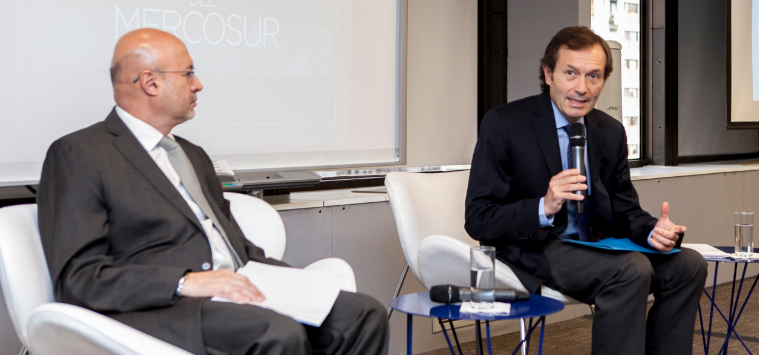We are living through a technological revolution, so does it make sense to think about integration in Latin America the way we did 25 years ago?
Back then, when the MERCOSUR was created, there was no e-commerce, no sharing economy, no Internet of Things, and no artificial intelligence. Big data for logistics was science fiction and no one had heard of additive manufacturing. Since then, data flows between countries have grown at an average annual rate of 50%.
Despite latent antiglobalization trends, the main developed economies have already launched ambitious programs to promote the digitization of industry and technology transfer. For example, Germany has created the Industrie 4.0 initiative; France, the Alliance Industrie du Futur; the United Kingdom, the Catapult Programme; the Netherlands, Smart Industry; and Spain, Connected Industry 4.0.
How can the Glocal (global+local) South take a quality leap toward better integration, diversify its productive matrix, and create quality jobs?
At INTAL, we called on experts to contribute to the “MERCOSUR Futures” report, which was premised on leaving behind the old feud between exclusive liberalism and over-the-top protectionism to move toward a smart regionalism made up of four strategic nodes:
- First, an early harvest for trade by pinpointing quick, realistic victories. The negotiation processes with the Pacific Alliance, the European Union, and China (the specific features of which vary greatly) were started over five years ago by governments of a very different political stripe. However, a work agenda that transcends party lines has endured, one that seeks to fine-tune specific aspects such as trade facilitation, cumulative rules of origin, customs cooperation, electronic certificates of origin, joint trade promotion, and single windows for foreign trade. Around 70% of trade between the MERCOSUR and the Pacific Alliance already enjoys significant preferences under the ALADI agreements. So it’s not a question of starting from scratch but rather one of adjusting our route a little.
- Second, a productive techno-integration that would support leading-edge firms and foster technology transfer and the spread of knowledge as catalyzers for systemic competitiveness. There are tech hubs in the United States, Europe, and now China where efficiency indicators (such as total factor productivity), even for the primary sector, are growing at 3.3% per year, significantly higher than the current 2.6% in the MERCOSUR. If the bloc’s member countries don’t jump onto this trend, they run the risk of losing market share to other, ever more efficient producers.
- Third, build bridges to sustainably close the equality gap. We know that social inclusion processes are more difficult in economies where diversification is limited. Regional producers of business services, the creative industries, e-commerce and software, among other sectors, have been able to position themselves within global value chains as part of a segment that accounts for over 20% of global GDP. The region’s biodiversity signifies huge clean energy potential. Why not design a regional energy policy for renewable energies, shared pollution control mechanisms, and environmental tax measures?
- Fourth, transparent governance, because regional integration processes cannot be separate from public debate or democratic processes. We need common rules for private capital, which are essential for attracting investment, particularly in regional infrastructure. The MERCOSUR does not yet have a shared investment regime. Nor does it have a shared regime for government procurement, which developed countries use as a countercyclical tool by giving a fixed share of expenditure to the sectors they are seeking to promote. This share is as high as 50% in South Korea and 25% in the USA. Why don’t we harness the huge power of spending on regional government procurement, which in Brazil and Argentina stands at 15% of GDP, to encourage innovation? Why doesn’t civil society stir up the debate on transparent financing for political campaigns, without which no regional infrastructure projects will ever be truly productive?
It is fundamental for the region’s citizens to be part of this process and for them to have confidence in it. According to the most recent INTAL/Latinobarómetro opinion poll, 81% of MERCOSUR citizens are in favor of economic integration in the region. We need to be true to their voice.
Our desire to come together in diversity constitutes a true global public good.


Leave a Reply